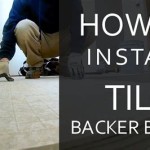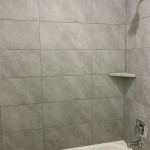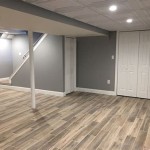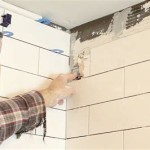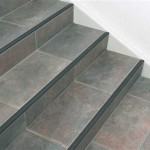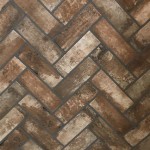Can You Tile On Concrete Blocks?
Concrete blocks, renowned for their durability and affordability, constitute a common building material for various structures, from foundations and retaining walls to exterior and interior walls. Given their widespread use, a common question arises: can you tile directly onto concrete blocks? The answer, while generally affirmative, necessitates a nuanced understanding of the preparation and techniques involved to achieve a successful and long-lasting tiled surface.
Several factors influence the suitability of concrete blocks for tiling. The block's stability plays a critical role; any movement or settling can lead to cracked tiles and grout. The block's surface texture and absorption rate also contribute significantly to the longevity of the tiling. Additionally, the intended use of the tiled surface, whether for interior walls, exterior walls, or floors, dictates the specific preparation methods and materials required.
Before undertaking any tiling project on concrete blocks, a thorough assessment of the block's condition is crucial. Check for any signs of deterioration, such as cracks, efflorescence (salt deposits), or loose mortar. These issues must be addressed before tiling commences to ensure a stable and sound substrate. Repairing cracks with appropriate concrete patching compounds and removing efflorescence with a stiff brush and a mild acid solution are essential preliminary steps.
Surface preparation constitutes a vital aspect of successfully tiling on concrete blocks. The surface should be clean, free of dust, debris, and any loose particles. A thorough cleaning with a wire brush or a pressure washer effectively removes contaminants and prepares the surface for optimal adhesion. In some cases, a primer may be necessary to promote better bonding between the concrete block and the thin-set mortar used for tile adhesion.
The choice of primer depends on the specific characteristics of the concrete block and the type of tile being used. For highly porous blocks, a primer designed to reduce absorption helps prevent the thin-set from drying too quickly, which can weaken the bond. Alternatively, for dense, non-porous blocks, a bonding primer improves adhesion by creating a textured surface for the thin-set to grip.
Applying a waterproof membrane is a highly recommended step, especially in areas exposed to moisture, such as bathrooms and showers. Waterproof membranes protect the underlying concrete block from water damage, preventing mold growth and structural deterioration. These membranes come in various forms, including liquid-applied membranes, sheet membranes, and cement-based waterproof coatings.
Selecting the appropriate thin-set mortar is crucial for long-lasting tile installations. Modified thin-set mortars, formulated with polymers, offer superior bonding strength and flexibility compared to traditional thin-set. For exterior applications or areas subject to temperature fluctuations, a thin-set with enhanced flexibility is recommended to accommodate expansion and contraction of the substrate.
The process of tiling onto concrete blocks generally follows standard tiling procedures. Apply the thin-set to the prepared surface using a notched trowel, ensuring an even and consistent layer. Place the tiles firmly onto the thin-set, maintaining consistent spacing with tile spacers. After the thin-set has cured, apply grout to fill the spaces between the tiles, creating a sealed and finished surface.
For exterior applications, the choice of grout is critical. Exterior-grade grout, formulated to withstand harsh weather conditions and temperature changes, is essential for maintaining the integrity of the tiled surface. Sealants may also be applied to further protect the grout from water penetration and staining.
Tiling directly onto concrete blocks offers a cost-effective and durable finish for various applications. However, proper preparation and the use of appropriate materials are essential for achieving a successful and long-lasting tiled surface. Addressing issues such as cracks and efflorescence, cleaning the surface thoroughly, and selecting the right primer, thin-set, and grout are crucial steps in ensuring a durable and aesthetically pleasing result.
Different types of tiles, such as ceramic, porcelain, and natural stone, can be used on concrete blocks. However, each tile type may have specific requirements regarding thin-set and grout selection. Consulting with a tile professional can provide valuable insights and guidance for selecting the appropriate materials based on the specific project requirements.
While tiling directly onto concrete blocks is feasible, an alternative approach involves installing a cement backer board over the blocks before tiling. This method provides a more uniform surface and can offer additional benefits in terms of insulation and soundproofing. However, this method adds an extra layer of cost and labor to the project.
Ultimately, the decision of whether to tile directly onto concrete blocks or use a backer board depends on factors such as budget, desired finish, and the specific characteristics of the concrete blocks. Careful consideration of these factors, combined with proper preparation and execution, will contribute to a successful and durable tiling project.

Tile Over Blockwork Mike Haduck

How To Install Ceramic Tile Over Painted Block Walls For A Shower Ehow

How To Install Ceramic Tiles On A Beautiful Concrete Wall Easily Construction Houses Step By
Slate Over Cinder Blocks Ceramic Tile Advice Forums John Bridge
Shower Pan In Bathroom With Cinder Block Walls Ceramic Tile Advice Forums John Bridge

How To Install Tile On Cinder Block Hunker Walls Wall
:max_bytes(150000):strip_icc()/can-you-install-tile-directly-on-concrete-1822600-04-458f7bb6c78348c1835cf8054ef36553.jpg?strip=all)
How To Install Tile Over Concrete
Exterior Slate On Concrete Block Column Advice Ceramic Tile Forums John Bridge

What To Do With Concrete Block Wall In Garage The Journal

Poured Concrete Walls For Better Basements
Related Posts

